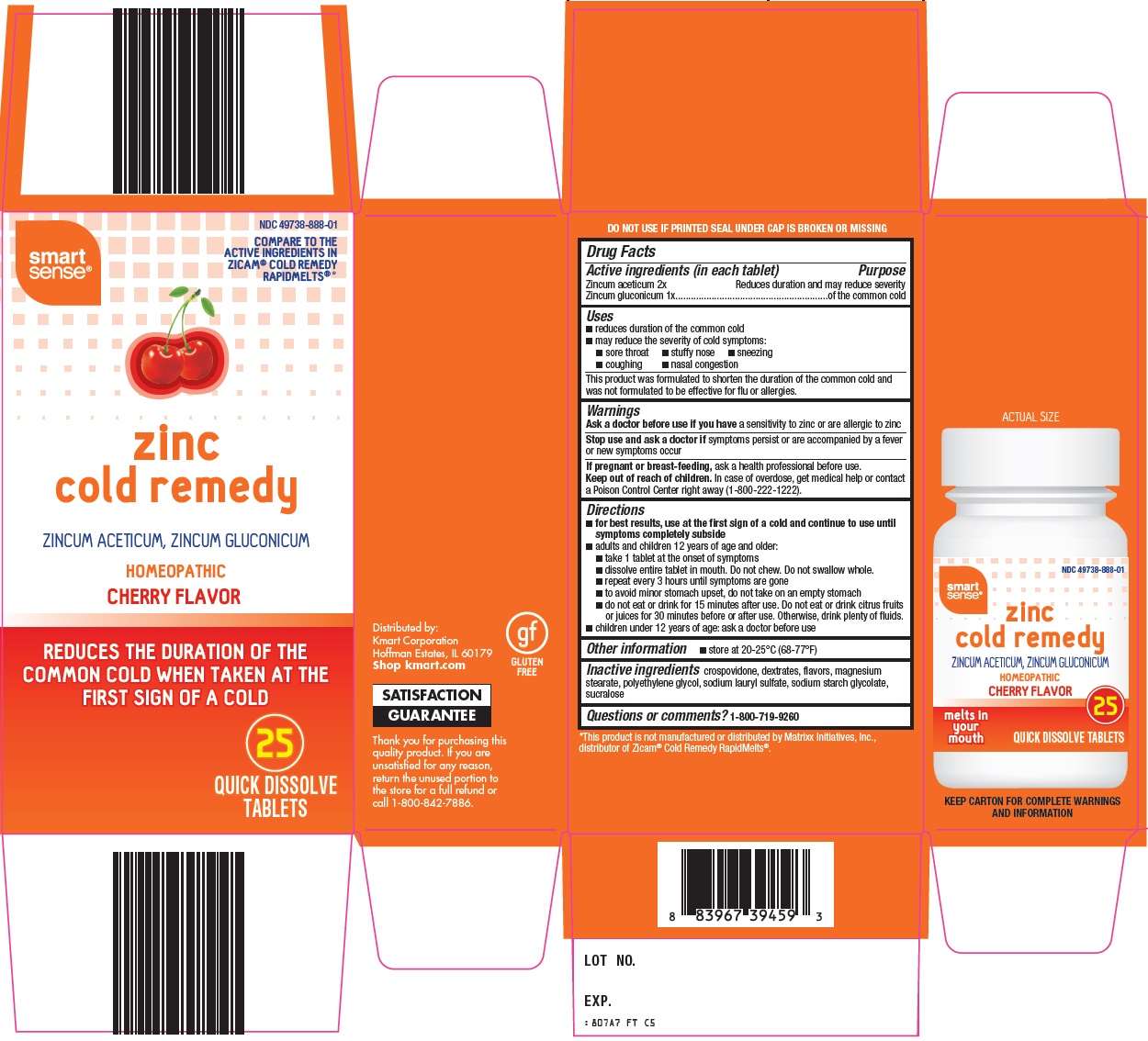Smart Sense Zinc Cold Remedy | Zincum Aceticum, Zincum Gluconicum Tablet, Orally Disintegrating while Breastfeeding

What is Smart Sense Zinc Cold Remedy | Zincum Aceticum, Zincum Gluconicum Tablet, Orally Disintegrating ?
Brief: Reduces duration and may reduce severity of the common cold
Can I use Smart Sense Zinc Cold Remedy | Zincum Aceticum, Zincum Gluconicum Tablet, Orally Disintegrating while breastfeeding?

Note: Due to high dilution of active ingredients in homeopathic medicines most homeopathic medicines are safe while breastfeeding.
Smart Sense Zinc Cold Remedy | Zincum Aceticum, Zincum Gluconicum Tablet, Orally Disintegrating Breastfeeding Analsys
Zinc acetate while Breastfeeding
SafeCAS Number: 557-34-6
Zinc (Zn) is an essential element for nutrition. It is present in many foods.Recommended daily allowance of Zn is 8 to 15 mg. (Moran Hall 2010). Millions of people worldwide are Zn-deficient.It is used as a treatment for Wilson's disease and Acrodermatitis Enteropathica. Zn is involved in the regulation process of lactation (Lee 2016).Pasteurization of the milk does not affect the concentration of Zn and other trace elements (Mohd Taufek-2016). The average concentration of Zn in breastmilk is 4 to 16 mg / L (Picciano 1976, Hannan 2005, Dórea 2012) which is independent of plasma levels and maternal daily intake (Krebs 1995, Chierici 1999, Hannan 2009).Intestinal absorption of zinc is almost doubled during pregnancy and lactation (Fung 1997).Zinc levels in the infant are dependent on Zinc levels in the breast milk (Dumrongwongsiri 2015)With a varied and balanced diet, an extra intake of minerals is not needed. Excessive intake of Zinc may cause gastrointestinal problems and Pancytopenia (Irving 2003).
Zinc gluconate while Breastfeeding
SafeCAS Number: 4468-02-4
Zinc (Zn) is an essential element for nutrition. It is present in many foods.Recommended daily allowance of Zn is 8 to 15 mg. (Moran Hall 2010). Millions of people worldwide are Zn-deficient.It is used as a treatment for Wilson's disease and Acrodermatitis Enteropathica. Zn is involved in the regulation process of lactation (Lee 2016).Pasteurization of the milk does not affect the concentration of Zn and other trace elements (Mohd Taufek-2016). The average concentration of Zn in breastmilk is 4 to 16 mg / L (Picciano 1976, Hannan 2005, Dórea 2012) which is independent of plasma levels and maternal daily intake (Krebs 1995, Chierici 1999, Hannan 2009).Intestinal absorption of zinc is almost doubled during pregnancy and lactation (Fung 1997).Zinc levels in the infant are dependent on Zinc levels in the breast milk (Dumrongwongsiri 2015)With a varied and balanced diet, an extra intake of minerals is not needed. Excessive intake of Zinc may cause gastrointestinal problems and Pancytopenia (Irving 2003).
I am nursing mother and I have already used Smart Sense Zinc Cold Remedy | Zincum Aceticum, Zincum Gluconicum Tablet, Orally Disintegrating, what should I do?
Homeopathic medicines usually do not cause harmful effects on breastfed babies. Smart Sense Zinc Cold Remedy | Zincum Aceticum, Zincum Gluconicum Tablet, Orally Disintegrating is a homeopathic medicine and if your baby does not have any abnormal symptoms then there is nothing to worry about. Some homeopathic medicines contain alcohol (ethanol) and such homeopathic medicines in high dosage can have bad effect on development of baby.
My doctor has prescribed me Smart Sense Zinc Cold Remedy | Zincum Aceticum, Zincum Gluconicum Tablet, Orally Disintegrating, what should I do?
Homeopathic medicines are usually safe in breastfeeding and if Smart Sense Zinc Cold Remedy | Zincum Aceticum, Zincum Gluconicum Tablet, Orally Disintegrating has been recommended by doctor then there should be no doubt about its usage in breastfeeding.
If I am using Smart Sense Zinc Cold Remedy | Zincum Aceticum, Zincum Gluconicum Tablet, Orally Disintegrating, will my baby need extra monitoring?
Not really.
Who can I talk to if I have questions about usage of Smart Sense Zinc Cold Remedy | Zincum Aceticum, Zincum Gluconicum Tablet, Orally Disintegrating in breastfeeding?
US
National Womens Health and Breastfeeding Helpline: 800-994-9662 (TDD 888-220-5446) 9 a.m. and 6 p.m. ET, Monday through Friday
UK
National Breastfeeding Helpline: 0300-100-0212 9.30am to 9.30pm, daily
Association of Breastfeeding Mothers: 0300-330-5453
La Leche League: 0345-120-2918
The Breastfeeding Network supporter line in Bengali and Sylheti: 0300-456-2421
National Childbirth Trust (NCT): 0300-330-0700
Australia
National Breastfeeding Helpline: 1800-686-268 24 hours a day, 7 days a week
Canada
Telehealth Ontario for breastfeeding: 1-866-797-0000 24 hours a day, 7 days a week
